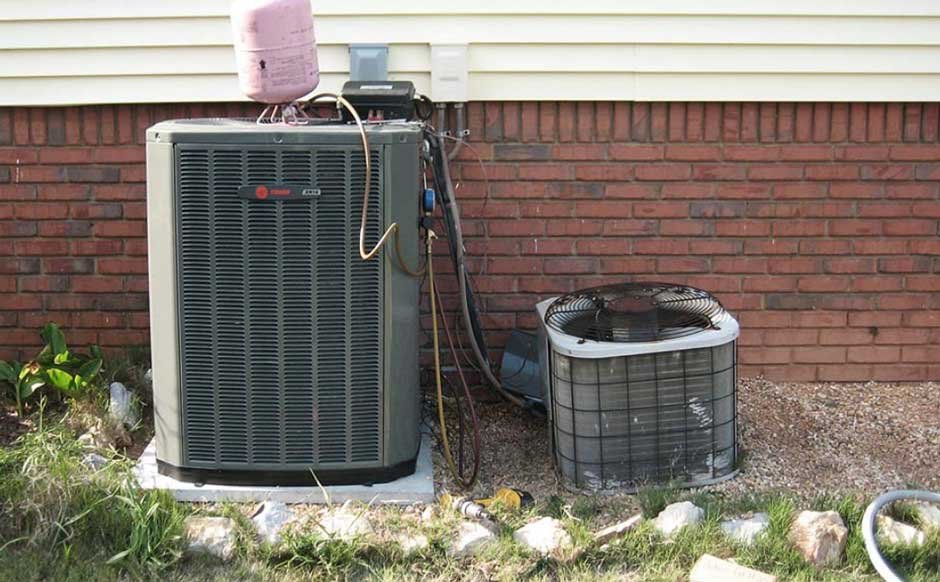HVAC system in a home is one of the most important appliances for both winter and summer. And with winter knocking on our doors, winterizing your HVAC system is important to enjoy the season comfortably.
Winterizing the home is necessary to protect the entire system from damage, rust, and so on. However, not many people know how to winterize the heating and cooling system. So, in this guide, we will focus on just that.
7 Tips on Winterizing the HVAC System
Winterizing the cooling and heating system of your home, which may involve air conditioner repair in Boise ID, is not that complicated. It includes cleaning, insulating, and so on. Here are a few tips to prepare your HVAC system for the winter.
1. Cover The Outdoor Unit
One of the first steps in winterizing the HVAC system is to cover the outdoor unit. In winter, the cooling system of the HVAC remains unused, and covering it is the best way to protect it. In order to do so, clean the outdoor unit and the pipes connected to it properly. Not doing so will cause the dirt, debris, leaves, etc. to freeze and clog the system.
Once the outdoor unit is clean, turn off the disconnect switch placed near the unit. Take a waterproof and breathable cover, and put it over the unit to prevent damage from snow, moisture, etc.
2. Clean Or Replace HVAC Filters
Air filters in the HVAC system play a major role in efficiency. Dust, debris, dirt, and so on accumulate in the filters over time. And when this happens, the airflow is disrupted, causing the system to work harder than usual. Before you start firing up your furnace for the winter, check the air filters and clean or replace them as necessary.
HVAC services in Anna, TX recommend that homeowners clean the air filters once every three to four months. This helps to maintain the efficiency of the system while lowering your bills at the same time.
3. Clean The Air Vents
Before you rely on the HVAC system to keep you warm and comfortable in the cold, harsh winter, make sure to clean the vents. Similar to air filters, the vents also accumulate bacteria, germs, dirt, debris, mold, mildew, etc. Cleaning the air vents will help to ensure an even distribution of heat while maintaining the air quality of your home.
4. Insulate Exterior Pipes
In winter, the outdoor temperature often drops to the point where it is freezing cold. This low temperature can impact the pipes connected to your outdoor HVAC unit. The exterior pipes are typically exposed to the temperature outside, which can result in freezing during cold weather.
Insulating these pipes is the best way to make sure that the pipes remain intact and do not encounter any sort of damage. Discuss the situation with an experienced HVAC technician, and insulate the pipes properly.
5. Prepare The Furnace
During summer, the furnace or heating system is not used. When the furnace remains out of operation for a few months, it accumulates dust, dirt, debris, and so on. Before the cold temperature hits our homes, preparing the furnace is essential to ensure the efficiency of the system.
Clean the furnace to get rid of the pollutants properly, and make sure to contact an HVAC technician to inspect the wiring, components, etc.
6. Check The Thermostat
If the thermostat is malfunctioning, maintaining the proper temperature will be difficult. On top of that, it will also cause the heating system to work harder while increasing the operating cost.
As a part of winterizing your HVAC system, troubleshoot the thermostat and set it at the correct temperature. If you do not have any knowledge about the thermostat, make sure to rely on a professional for the job.
7. Prevent Heat Loss
Last but not least, preventing heat loss is very important to winterize your home in winter. Oftentimes, open doors or cracked windows let the heat escape easily. And when this happens, the HVAC system will not be able to heat the entire home efficiently.
Make sure to repair windows and doors and close them properly before turning the furnace on. Not only that, but insulate the home to prevent the heat from escaping.
Frequently Asked Questions (FAQ)
Question: How To Get Ice Off The Outdoor Unit?
If ice accumulates on the outdoor HVAC unit, make sure to turn off the system first. Wait for a few hours and allow the ice to melt completely. You can also pour warm water over the ice to instantly melt the ice. Turn the cooling system on once the ice has melted properly.
Question: Why Is It Important To Winterize My Home?
Winterizing your home before the cold temperature of winter hits is crucial to make sure that your HVAC system performs efficiently. This will also ensure that the cooling system is protected and does not corrode or get damaged in any condition. It will also help you to lower your energy bills while preventing major repairs in the future.
Question: How Much Does It Cost To Winterize A Home?
The cost of winterizing the home typically costs about $200 to $400. This cost typically includes inspection charge, thermostat batteries, outdoor unit cover, and many more. However, the cost will increase significantly in case of emergency repairs or replacements.
Bottom Line
Ensuring comfort and a warm temperature inside the home during winter is important for your health. And for efficient performance in the cold, relying on a perfectly functional HVAC system is important. Winterizing your home to prepare for the season is a must to prevent damage, improve longevity, and lower electricity bills.
Now that you know how to winterize your HVAC system, we hope that you will enjoy a comfortable winter in your home. Make sure to rely on professionals when it comes to replacing thermostats, filters, and many more.






